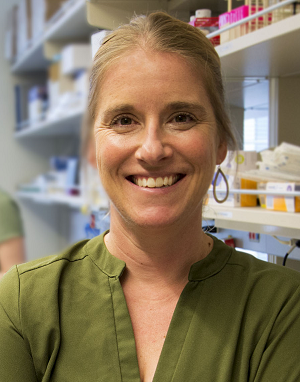My doctoral training in molecular and cellular biology was completed at the University of Washington in June 2009, under the supervision of Dr. Albert R. La Spada. My PhD thesis centered on the role of neuronal autophagy in response to polyglutamine-expanded proteins, a class of mutations that result in inherited neurodegenerative disease. My work resulted in one of the first characterizations of autophagy activation in mammalian neurons and was the first to show a protective role for this mechanism in the polyglutamine disorder known as spinal and bulbar muscular atrophy. I pursued postdoctoral training in the lab of Dr. Lawrence S.B. Goldstein at the University of California, San Diego, specifically to learn stem cell biology and work on neurodegenerative disease in a human system. In the Goldstein lab, in a BrightFocus-supported fellowship, I generated hiPSCs from a cohort of late-onset, AD patients and controls and investigated the effects of a common risk haplotype in the SORL1 gene, which has been associated with AD in population studies. I reasoned that a low- to moderate-effect risk gene would yield detectable biochemical phenotypes in purified hiPSC-derived neurons. My work demonstrated that cell lines harboring risk variants showed a differential effect on SORL1 gene expression after stimulation with neurotrophic factors, and that this directly corresponded to the amount of amyloid beta detected from neuronal cell cultures. I started my independent laboratory at the University of Washington in July of 2016. My current research focuses in two main areas: how genetic risk in endosomal trafficking genes contributes to cellular AD phenotypes in vitro; and how neuronal maturity, function, and age interact to prevent or promote AD pathogenesis in human neurons.
Jessica Young, PhD
First published on: September 25, 2018
Last modified on: November 23, 2024
